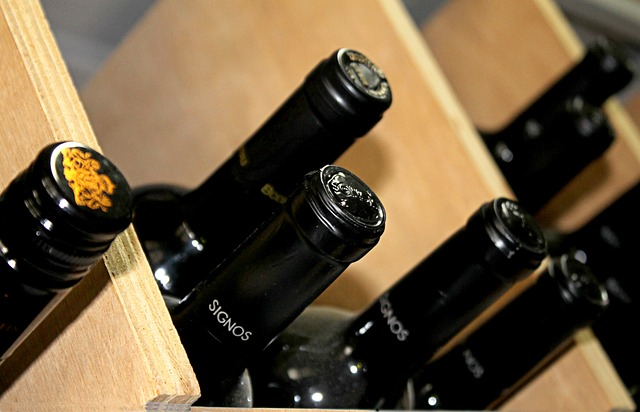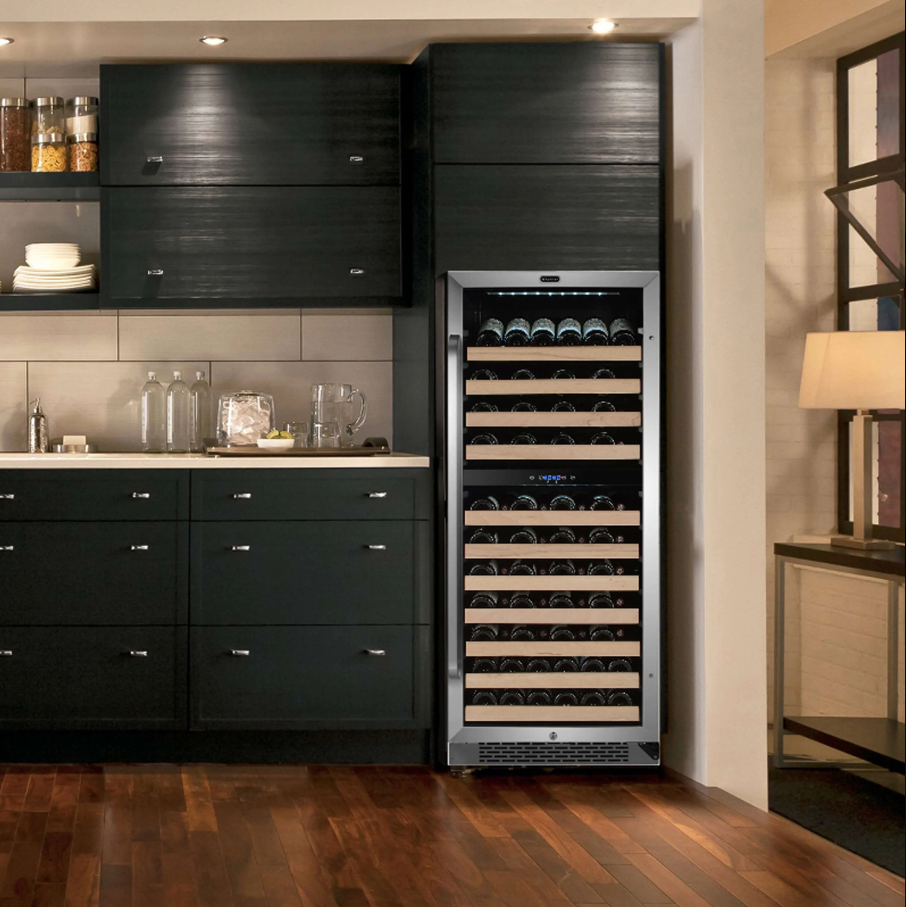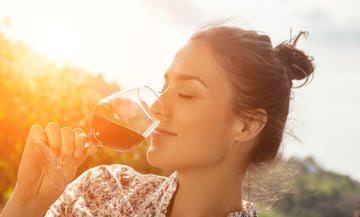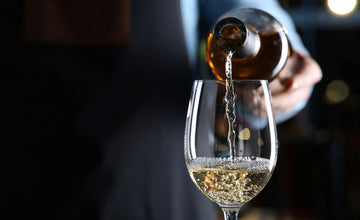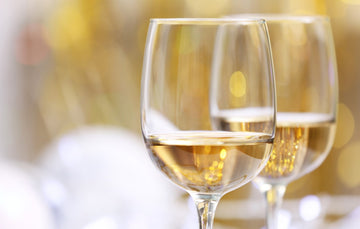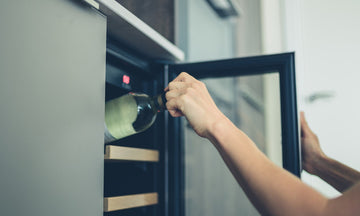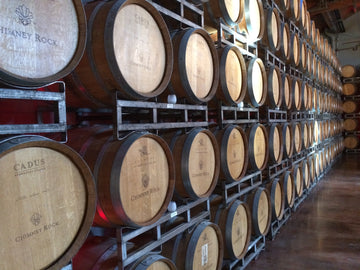
Age of Wine: The Science of Cellaring Wine
Wine Coolers or Wine Refrigerators are Excellent Short Term Wine Storage Devices
When it comes to aging wine, there are several important factors that come into play. The age and variety of wines, the way they are stored, and even their region of origin can all influence how well a particular bottle of wine ages. Wines naturally age in the bottle due to complex chemical reactions involving phenolic compounds. Wines such as Cabernet Sauvignon, tend to age better than white wines due to the presence of tannins and other compounds that facilitate aging. Wines may also be artificially aged in oak barrels or bottle-aged, where components from the wood impart flavor and complexity to the wine.
In addition to these factors, there are other considerations for aging wine properly. Wine's acidity plays a large role in the aging process; younger wines will typically have higher levels of acidity compared to mature wines. This is why many young wines can taste hollow or overly acidic at first, but then mellow out over time with proper cellaring. Additionally, acidic grapes such as Pinot Noir, Chardonnay, and Cabernet Sauvignon can benefit from aging as the acidity drops over time.
The way in which a wine is bottled also has an effect on its aging potential. Wines packaged in dark glass bottles will age better than lighter colored bottles due to the fact that they protect the liquid from light exposure. In addition, wines produced using minimal skin contact or oak-derived notes are better suited for cellaring than those aged with more complex aromas and flavors.
Winemakers have some control over the presence of tannins, sulfites and acid in wine. Winemakers can use specific juice extraction techniques by gently, or aggressively, squeezing their grapes and thus releasing less, or more, grape skin and tannins. Winemakers dating back to the Greeks and Romans have been using or adding sulfites to their wine barrels and wine to enable it to last longer and age. Lastly, the varying climates of wine growing regions impact the natural acids in grapes, further, some winemakers can and do add acids to wine. Given the foregoing, it is impossible to make specific rules about how long any given wine will age.
THE RULE OF THUMB WHEN IT COMES TO WINE AGING:
-
Wine must have a fairly high level of tannins to age at all.
-
Wine must have acidity to keep it fresh tasting.
-
Fruit is what makes wine taste good
-
The fuller a wine is in all 3 of these components, the longer it will age.
Most wines, like Cabernet Sauvignon and Syrah, tend to have more tannins and acidity than white wines. As such, reds generally age better than whites. Sparkling wines and Ports also tend to benefit from aging, as the bottle-aging process can round out the taste of these styles of wine. In addition, aged ports are often considered a delicacy among many wine enthusiasts.
When it comes to aging wine properly, there is no single rulebook or formula that will guarantee success every time. However, with the right combination of factors – including proper storage conditions and grape variety – you can maximize your chances for successfully cellaring a great bottle of age wines.
THE IMPORTANCE OF HAVING A WINE COOLING SYSTEM:
Use your wine cooler, wine refrigerator, wine cellar or wine chiller, to keep your wine at 55 degrees Fahrenheit, or 13 degrees Celsius, which is the most ideal temperature for aging it. Wine ages much more quickly at 68 degrees to 78 degrees Fahrenheit (20 degrees to 25 degrees Celsius), which are the average temperatures of a typical household. Keep your wines at a level 55 degrees Fahrenheit and they will age slowly and perfectly.
Paradoxically, the most important way to tell if your wine is ready to drink, is to open and taste a bottle. Opinions can and do vary on appropriate wine aging and taste, thus your own individual taste should dictate. This seeming paradox is one of the best reasons to buy wine by the case, or buy multiple bottles of the same age wine.
Frequently Asked Questions:
Can I drink a 100-year-old wine?
While it's possible that a wine has been stored well enough to remain drinkable for 100 years, it's not likely. Wine is a natural product and will age differently depending on storage conditions of each individual wine.
Aged wines are those that have been stored in optimal conditions for an extended period of time. The fermentation or aging process mellows the flavors and aroma of the wine and can also result in the development of new flavors. Some collectors and wine lovers seek out aged wines for their unique flavor profile, but they can be quite expensive around the world.
What is wine age called?
Wine age is typically called "vintages" or the "age worthy" wine, as in "I just got a bottle of 1982 vintage sauvignon". The term "vintages" can only be used when talking about wine that was made from grapes that were all harvested in the same year. So, for example, you couldn't call a wine that was made from a blend of 1982 and 1983 grapes a "1982 vintage" because some of the fruits were picked in 1982 and some were picked in 1983. You could only call it a "1982" if all of the grapes were harvested and fermented in 1982 and these are mostly expensive wines around the world.
What is the difference between aging red and white wines?
Aging red wines and white wines differently has more to do with the different colors of the wines than anything else. these wines are usually made with dark-colored grapes, while white wines are made with light-colored grapes.
The tannins in red wine – the compounds that give red wine its bitter taste – also tend to react with oxygen, which can create new flavors and colors in the wine during the aging or fermentation process. White wines don't have as many tannins as red wine, so they don't need as much time to age. They can be bottled and sold right away, while red wines need to be barrel-aged for a few years before they're ready to drink.
Is it true that wine gets better with age?
Yes, wine can get better with age but this depends on a few factors like the type of wine and how it's stored. Red wines tend to age better than white wine, and wines that have been oak-aged tend to taste better with time. The key is to store wine in a cool, dark place where there's little exposure to light and air. If you can manage that, your wine will continue to develop and change over time, becoming more complex and smoother-tasting.
What percentage of wine gets better?
There isn't a definitive answer to this question since wine is a complex beverage that can vary dramatically depending on the climate, soil, and other factors where it's grown. However, most wine experts would agree that around 95% of wine gets worse with time.
The main reason for this is that wine is made from grapes, and grape juice starts to spoil and ferment pretty quickly. This process releases alcohol and other compounds that can make the wine taste sour, vinegary, or just plain bad. So in order to keep the wine from spoiling, winemakers have to add sulfites (a type of preservative) to the grape juice before it's fermented.
What is the difference between a young wine and and aged wine?
The biggest difference between a young wine and an aged wine is that a young wine will have more fruit flavors and aromas, while an aged wine will have more complex flavors and aromas.
A young wine will also be higher in acidity, while an aged wine will be lower in acidity. This is because as a wine ages, the acids in the grape juice start to convert into alcohols. Young wines are also higher in tannins than aged wines, because tannins are compounds that come from the skin of the grape, and as a wine ages, the tannins start to mellow out.
Can you drink 1 year old opened wine?
It is not recommended to drink wine that has been opened for more than a few days, especially if the cork has been removed. Wine contains sulfites, which are a type of preservative. When wine is exposed to air, the sulfites oxidize and form sulfur dioxide (SO2), which can cause headaches or be toxic in high doses. SO2 can also react with other compounds in the wine to create hydroperoxides, which are known to be carcinogenic.
What wine should not be aged?
Is there a way to get more out of your wine without the risk of aging? The vast majority of modern wine producers anticipate their wine being consumed by consumers within days after buying it. So the wine is designed to taste good right from the bottle, without ageing. The winemaking process includes the aging process and the winemaker can already aging the bottle to the extent they consider necessary to do it. How do we get wine without aging? In aging wine the benefits lie in the required structures in wine for longevity.
Does wine improve with age?
Yes the grapes tend to improve as you get older as time passes. But there is a advantage between aging wine barrels and aging wines from a private bottler in his cellar.
What is the saying about fine wine and age?
It takes time for wine to reach its peak. Wines that are designed to be aged will often have the phrase "Garde Manger" on the label, which means "to keep/store". The longer a wine is stored, the more complex the flavors become as secondary and tertiary flavors develop. That's why wines that are meant to be aged can sometimes cost a lot of money - because they've been stored for a long time and have reached their peak flavor.
CONCLUSION
Ultimately, cellaring wine is an art and a science. The science aspect comes from the knowledge of how to store and preserve wine in order to bring out its best flavor and quality. It is important to remember that no two wines are alike, so it's best to experiment with different storage temperatures, humidity levels, and other conditions before committing your bottles to long-term aging. With some patience and practice, you can learn how to cellar wine like a pro!


